Pecans are a popular snack and ingredient in many different dishes. They’re commonly found in desserts, such as pecan pie and pralines, or used as a coating for chicken or fish. Some people even prefer to eat them raw, using them as an on-the-go snack. It’s no surprise that pecans are loved by so many – they have a rich, buttery flavor that pairs well with sweet and savory dishes alike. Have you ever wondered “Can dogs eat pecans?”. Let’s find out.

The Common Question: Can Dogs Eat Pecans?
With their popularity among humans, it’s natural to wonder if our furry friends can enjoy pecans too. Unfortunately, the answer is no – dogs should not eat pecans.
While they may look harmless enough, nuts like pecans can pose serious health risks to our pups. The reason why some nuts are toxic to dogs has to do with their high-fat content.
Nuts also tend to be difficult for dogs to digest properly, which can cause gastrointestinal upset or even blockages in the digestive system. It’s important for pet owners to be aware of what foods are safe and healthy for their animals – this extends beyond just dog food and treats.
While sharing snacks with your pup may seem harmless (and often adorable), it can lead to serious health consequences if you’re not careful. In the next section, we’ll take a closer look at the potential dangers of feeding pecans to dogs – including symptoms they may experience after consuming them.
Overview of Pecans
Definition and Characteristics of Pecans
If you’re like most people, you probably don’t give much thought to what a pecan actually is. It’s just a nut, right?
Well, yes and no. Pecans are a type of tree nut that is native to North America.
The trees themselves can grow up to 100 feet tall and have a lifespan of over 300 years! Pecans have a distinctive taste and texture that sets them apart from other nuts.
They’re crunchy, buttery, and slightly sweet, with a rich flavor that makes them popular in sweet dishes like pies and candies. In their raw form, pecans are light brown with a smooth shell that’s easy to crack open.
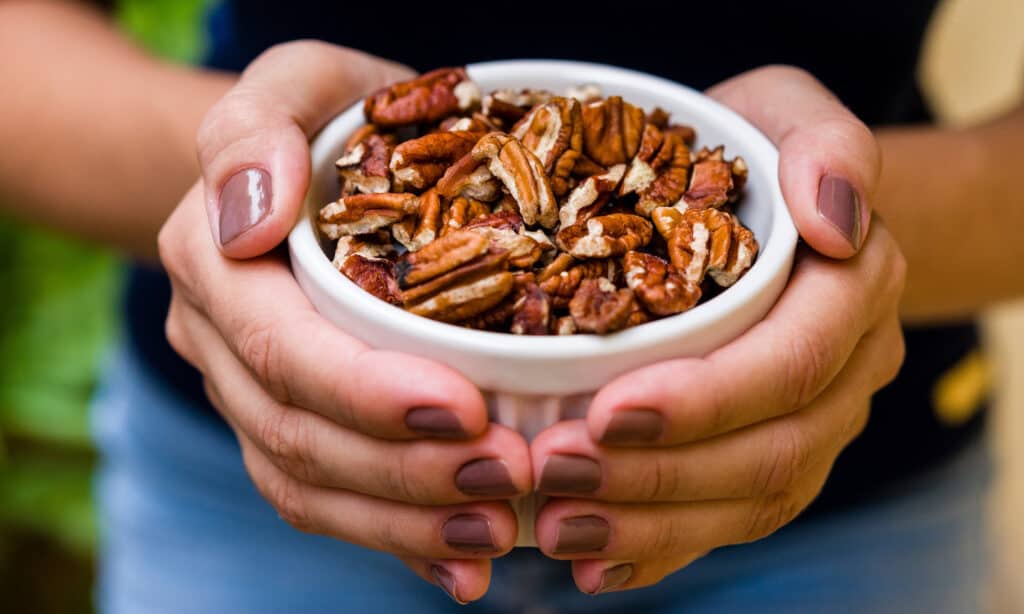
Nutritional Value and Health Benefits for Humans
Pecans may be delicious, but they’re also packed with nutrition. Just one ounce of pecans (about 19 halves) contains:
- 196 calories
- 20 grams of fat (mostly healthy monounsaturated fat)
- 3 grams of protein
- 4 grams of carbs
- 3 grams of fiber
In addition to being high in healthy fats and protein, pecans are also rich in vitamins and minerals like:
- Vitamin E: an antioxidant that protects the body from damage caused by free radicals
- Magnesium: important for maintaining healthy bones and muscles – Copper: needed for the production of red blood cells
- Zinc: helps boost the immune system
Studies have also shown that eating pecans can provide numerous health benefits for humans. For example:
- Lowered cholesterol levels: The monounsaturated fat in pecans can help lower LDL (bad) cholesterol levels in the blood.
- Reduced inflammation: Pecans contain anti-inflammatory compounds that may help reduce inflammation throughout the body.
- Improved gut health: The fiber in pecans can help promote healthy digestion and prevent constipation.
So, as you can see, pecans are not only delicious but also quite nutritious. But what about dogs?
Can they eat pecans too? Let’s find out in the next section.
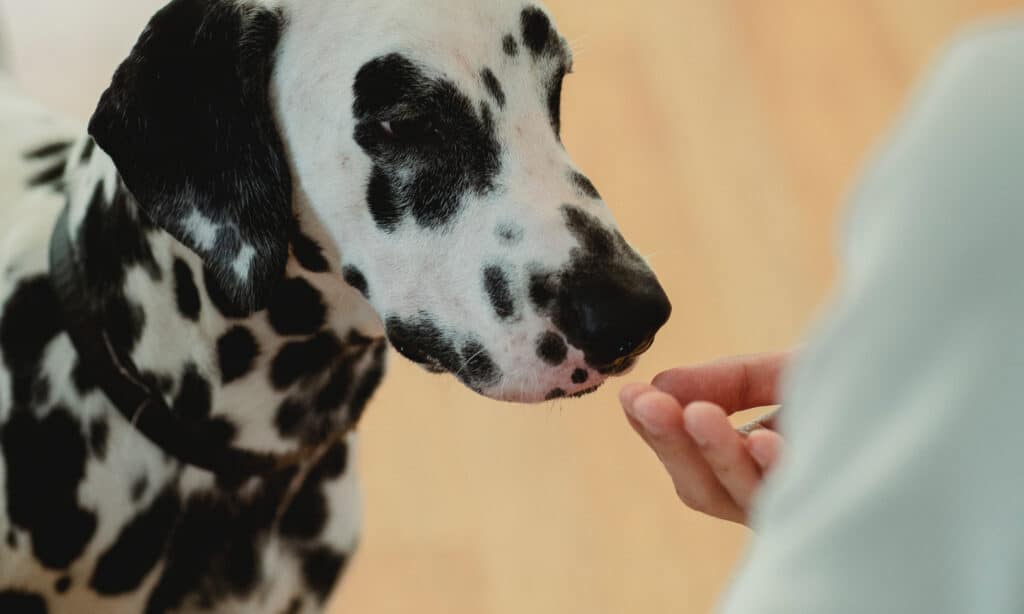
Can Dogs Eat Pecans?
As much as we love our furry friends, it’s important to remember that not all human foods are safe for dogs to consume. This includes certain nuts, such as pecans. While pecans may be a delicious and nutritious snack for us humans, they can actually be quite dangerous for dogs.
Explanation of why some nuts are toxic to dogs, including pecans
Pecans contain a toxin known as juglone, which can be harmful to dogs if ingested in large amounts. Juglone is found in the leaves, bark, and nut husks of the pecan tree. When dogs eat pecans or any other part of the tree that contains juglone, it can cause a range of health issues.
The Potential Dangers of Feeding Pecans To Dogs
If your dog consumes pecans or any other food containing juglone, it can lead to a variety of symptoms and health problems. These include vomiting and diarrhea, lethargy and weakness, fever or increased body temperature, loss of appetite or refusal to eat altogether. In addition to these symptoms, consuming too many nuts can lead to more serious complications such as pancreatitis – an inflammation of the pancreas – which may require hospitalization or even surgery in severe cases.
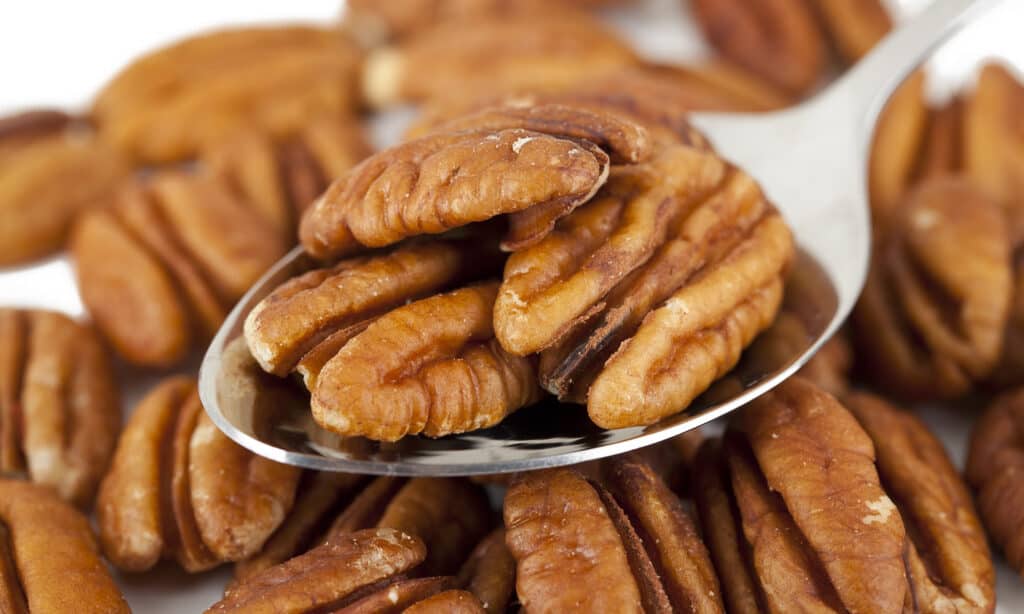
Symptoms And Signs That A Dog May Have Eaten Pecans
If you suspect your dog has eaten pecans or anything else containing juglone it’s important to contact your veterinarian right away. The symptoms may not show up right away but could start within hours after ingestion. Some signs that your dog may have eaten something toxic include vomiting and diarrhea; lethargy; fever; loss of appetite; abdominal pain; dehydration from excessive vomiting and diarrhea (which could lead to collapse), so be aware of these symptoms.
Health Risks Associated With Consuming Pecans For Dogs
If your dog has consumed pecans or anything containing juglone, the best thing to do is to seek immediate medical attention from your veterinarian. Depending on the severity of the symptoms, your dog may need to be hospitalized and treated with IV fluids, medications, or other treatments.
In severe cases, surgery may be necessary to remove any remaining pecan pieces from your dog’s digestive tract. The best way to avoid these health risks altogether is by keeping pecans and other dangerous foods out of reach of your pet.
While pecans are a tasty treat for us humans, they can be harmful to our precious dogs. Be aware of what foods are safe for dogs and keep all dangerous food items out of reach.
If you notice any signs that your pet may have eaten something they shouldn’t have, contact your veterinarian immediately. Your furry friend will thank you in the end!
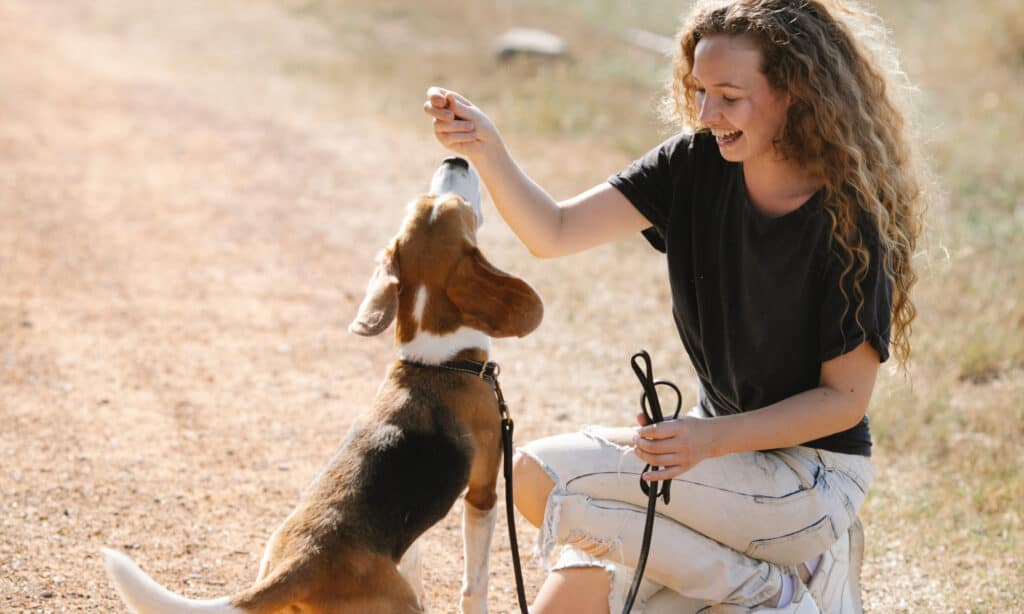
Effects of Pecan Consumption in Dogs
Symptoms and Signs That a Dog May Have Eaten Pecans
Pecans are not safe for dogs to eat. If your dog has eaten pecans, they may show symptoms such as vomiting, diarrhea, abdominal pain, loss of appetite, lethargy or even collapse.
These symptoms can be caused by the high-fat content of pecans, which can lead to digestive problems in dogs. In severe cases of pecan poisoning, a dog may develop pancreatitis which is an inflammation of the pancreas that can cause severe abdominal pain and even death if left untreated.
Other signs that your dog may have eaten pecans include difficulty breathing or an allergic reaction such as swelling around the face or difficulty swallowing. If you suspect that your dog has eaten pecans and is showing any of these symptoms or signs, it is important to seek veterinary care immediately.
Health Risks Associated with Consuming Pecans for Dogs
Pecan poisoning in dogs can also lead to liver damage due to its high levels of toxicity. The nut contains juglone which is toxic to dogs and can cause damage to red blood cells leading anemia in dogs.
Furthermore, if a dog eats too many pecans at once it can lead to intestinal blockage which requires immediate surgical intervention. As previously mentioned pancreatitis is one of the most severe conditions associated with ingestion of pecan by dogs.
It is caused when the body tries to digest too much fat at once causing an inflammatory response from the pancreas. If you notice any adverse effects on your dog after giving them human food containing nuts like pecan or any other nut for that matter, make sure you take them promptly for medical attention before it’s too late.
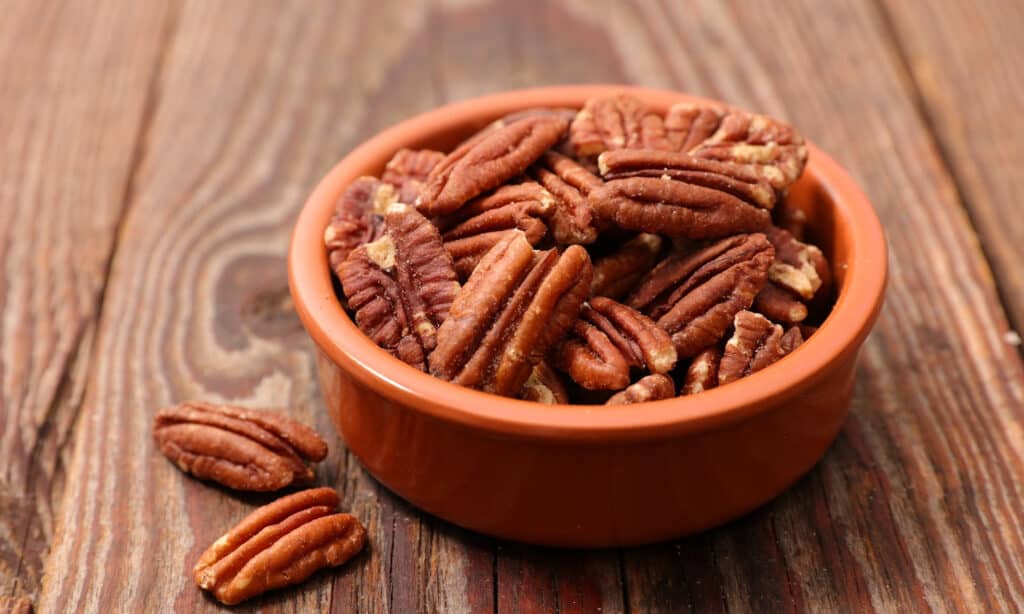
Alternatives To Pecans For Dogs
There are many safe and healthy alternatives to pecans that dogs can enjoy. Some of the best options include:
- Carrots
- Apples (without seeds)
- Sweet potatoes
- Broccoli
- Cauliflower
Not only are these foods safe for dogs, but they also provide a variety of health benefits such as vitamins and minerals. These alternatives can be given as a snack or added to your dog’s diet in moderation.
It is important to remember that while some human foods may seem harmless they may have adverse effects on our furry friends. Providing your dog with a balanced diet consisting of food specifically formulated for them is always the best option.
Alternatives to Pecans for Dogs
A Healthy Snack List for Dogs
As much as we love our furry friends, it can be hard to resist their big eyes and pleading faces when we’re snacking on something they’d love to have. Fortunately, there are plenty of healthy treats that dogs can enjoy without risking their health. Here are some of the best options:
- Carrots: These crunchy veggies are a great source of fiber and vitamins, making them a super healthy snack for your pup.
- Apples: Apples are another great source of fiber and vitamins, but make sure to remove the seeds first – apple seeds contain small amounts of cyanide that can be toxic in large quantities.
- Blueberries: These little berries pack a big punch when it comes to antioxidants, making them a great choice for keeping your dog’s immune system strong.
- Peanut butter (in moderation): Peanut butter is high in protein and healthy fats, but it’s also high in calories – so make sure you only give it to your dog in small amounts.
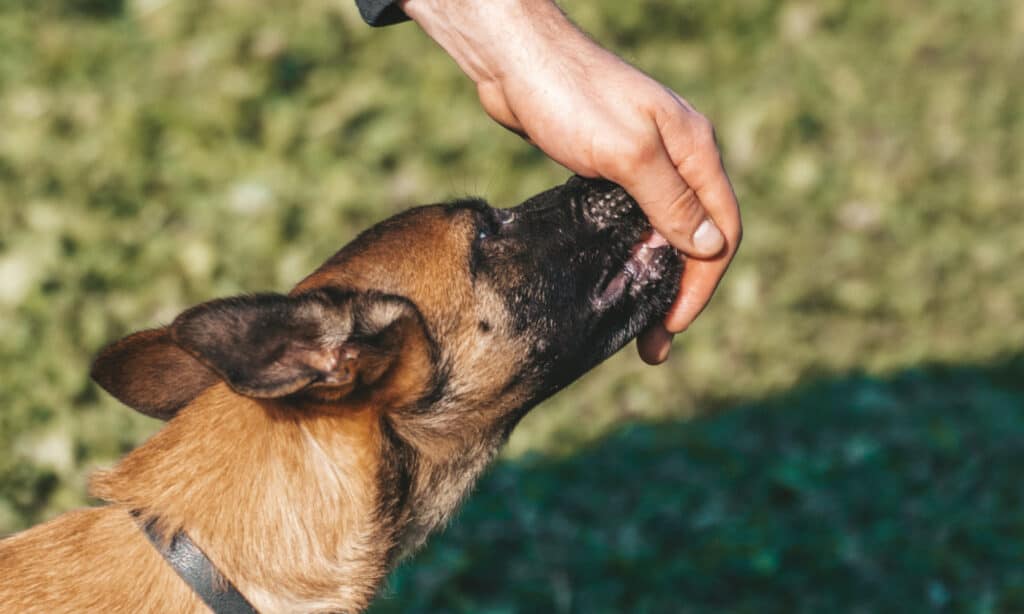
Incorporating Alternatives into Your Dog’s Diet
When incorporating new snacks into your dog’s diet, it’s important to do so gradually. Introduce small amounts at first and monitor your dog’s reaction – if they experience any digestive upset or other issues, don’t continue feeding them that particular snack. One way to incorporate these alternative snacks is by using them as training treats or rewards.
For example, you could use small pieces of carrot or apple when teaching your dog new commands or tricks. Just be careful not to overdo it with the treats – too many can lead to weight gain and other health problems.
You can also mix some of these healthier snacks into your dog’s regular meals. For example, you could chop up some blueberries or carrots and mix them in with your dog’s kibble.
This adds some variety to their diet and provides them with extra nutrients. While pecans may be off-limits for dogs, there are plenty of other healthy snacks that they can enjoy.
From crunchy carrots to sweet blueberries, there are a variety of options that can be incorporated into your dog’s diet in a safe and healthy way. Remember to introduce new snacks gradually and monitor your dog’s reaction – and as always, consult with your veterinarian if you have any concerns about what you’re feeding your pup.
Conclusion: Keeping Our Furry Friends Safe
Recap on the Dangers of Feeding Pecans to Dogs
While pecans are a delicious and beloved snack for humans, they can be quite dangerous for our furry friends. Not only do pecans present a choking hazard due to their size and shape, but they can also contain toxins that can cause serious health problems in dogs.
These toxins include juglone, which can cause gastrointestinal distress and even death in extreme cases. Additionally, the high-fat content of pecans can lead to pancreatitis in dogs.
If you suspect that your dog has consumed pecans, it’s important to watch out for symptoms such as vomiting, diarrhea, lethargy, loss of appetite, and dehydration. If your dog is displaying any of these symptoms or if you know that they have ingested pecans or any other toxic substance, it’s critical that you seek veterinary care immediately.
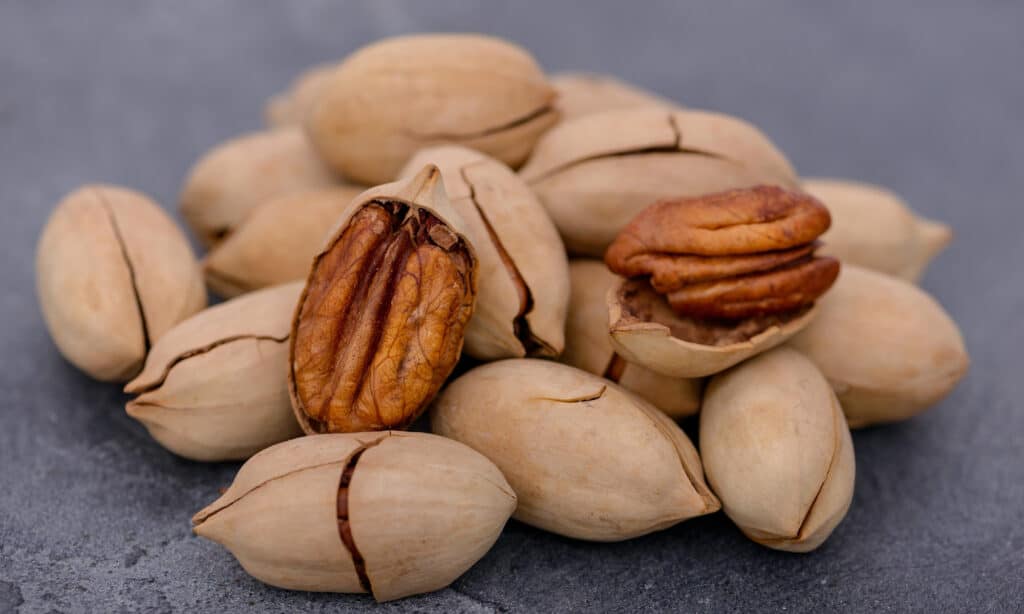
The Importance of Being Aware of What Foods Are Safe for Our Furry Friends
As pet owners and animal lovers, it’s our responsibility to ensure the safety and well-being of our furry friends. This means being knowledgeable about what foods are safe and healthy for them to eat – as well as which foods are not.
While some human foods may seem harmless or even healthy at first glance (like blueberries or chicken), they may actually be quite dangerous for dogs. It’s important to do your research before feeding your dog any new food item – especially if it’s something that you regularly eat yourself.
Some common human foods that are toxic to dogs include chocolate (which contains theobromine), grapes/raisins (which can cause kidney failure), onions/garlic (which can damage red blood cells), and macadamia nuts (which can cause lethargy/vomiting). By staying informed on what foods are safe and dangerous for dogs, you can help prevent serious illness or even death in your furry friend.
In addition to avoiding toxic foods, it’s also important to ensure that your dog’s diet is nutritionally balanced and appropriate for their age/breed/health status. This means consulting with your veterinarian to determine the best type of food to feed your dog, as well as monitoring their portion sizes and ensuring that they are getting enough exercise.
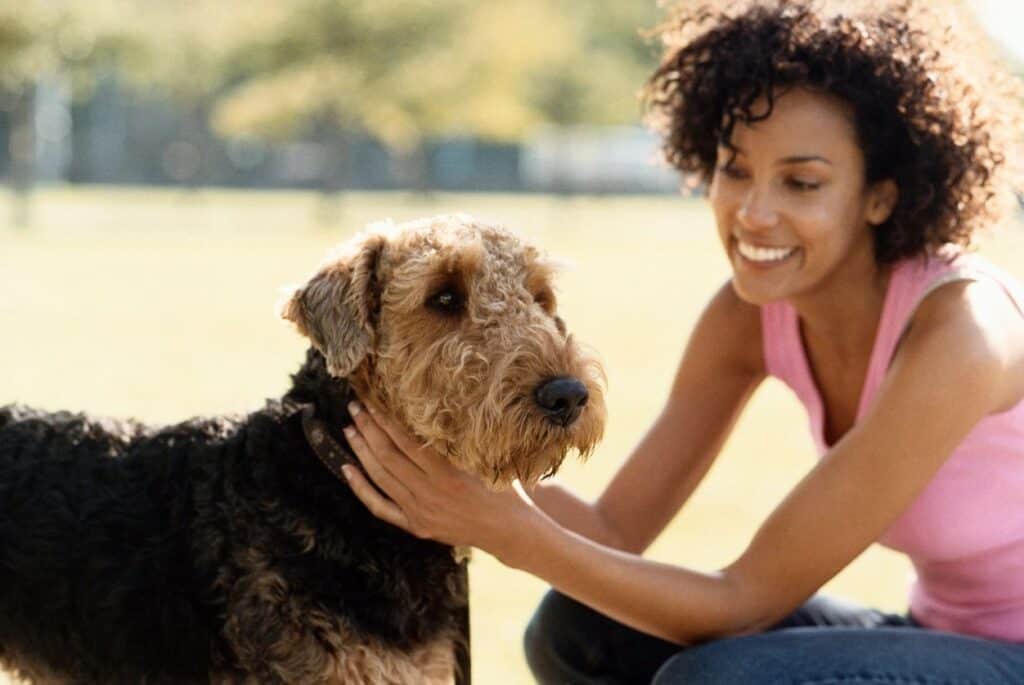
Final Thoughts
While the question of whether or not dogs can eat pecans may seem trivial at first glance, it highlights a larger issue of pet safety and responsible ownership. By taking the time to research and understand what foods are safe for our furry friends – as well as being cautious about feeding them new items – we can help ensure their health and happiness for years to come. As pet owners, it’s our duty to prioritize our dog’s safety above everything else.
This means keeping a watchful eye on what they eat, seeking veterinary care when needed, and making informed decisions about their nutrition. By doing so, we can help ensure that our furry friends live long, happy lives by our side.
~Lindsie
